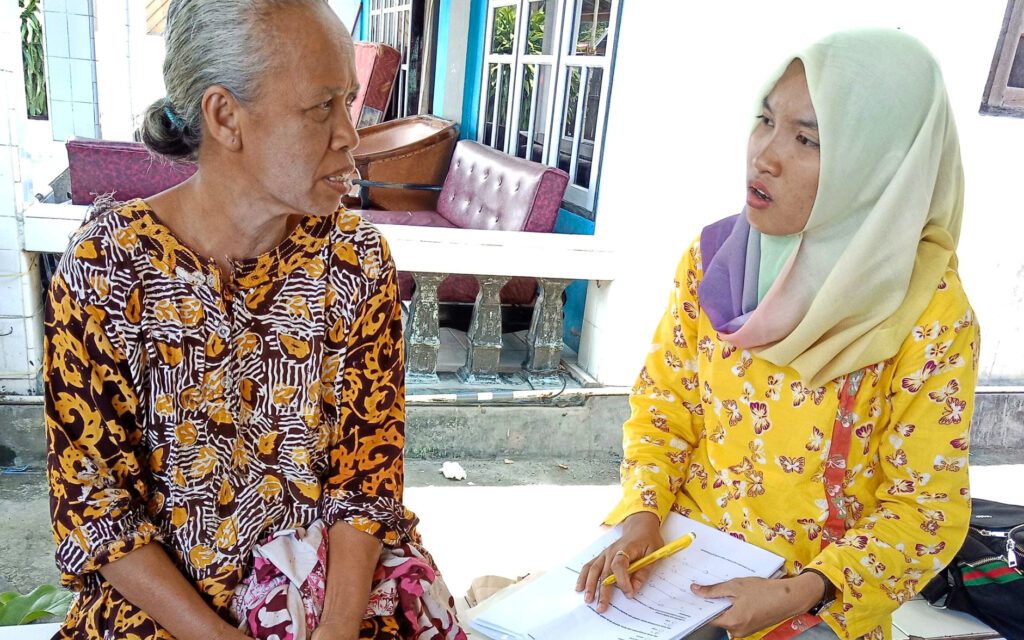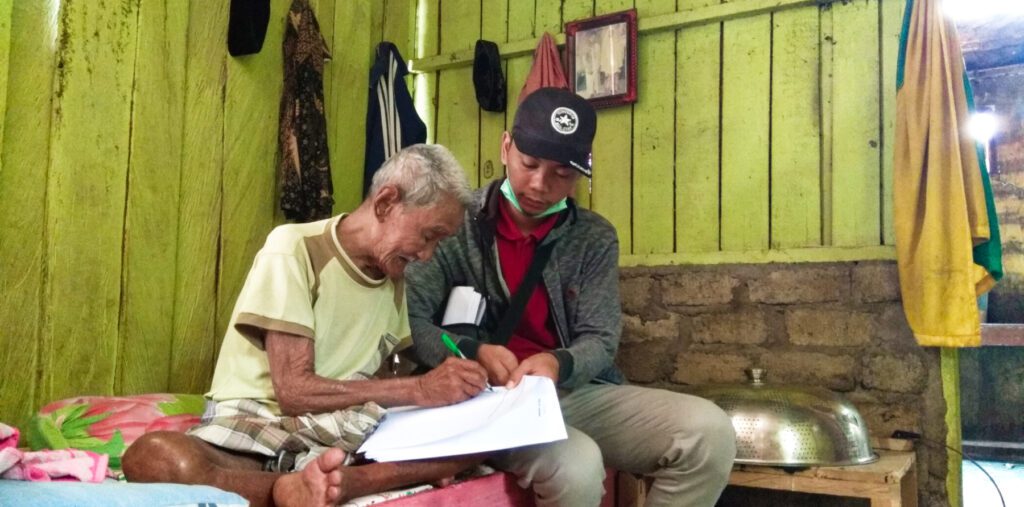
On September 28, 2018, a 7.4 magnitude earthquake struck the province of Central Sulawesi in Indonesia, triggering a tsunami that hit Palu Bay and the western coast of Donggala.
The earthquake-tsunami has had disastrous consequences. According to official figures, 2,081 people have died, 4,438 have been severely injured, and 206,494 have been internally displaced. Another 1,309 people have been reported missing. Homes and other buildings have collapsed; health infrastructure has been damaged, and transportation systems have been disrupted. Risks of water-borne diseases such as cholera, dysentery, and typhoid are high.
In natural disasters of this magnitude, older people are especially vulnerable. They are at higher risk of fatality and face specific challenges accessing humanitarian assistance. For example, HelpAge estimates that 40% of those who perished in Typhoon Haiyan in the Philippines were over the age of 60.[1] When HelpAge surveyed older people affected by Haiyan, we found that they experienced difficulties finding shelter and food that they could eat.
HelpAge carries out such surveys, known as early rapid needs assessments (RNAs), to mitigate and prevent older people’s exclusion from humanitarian assistance. RNAs enable older people’s stories to be told and their needs documented. The data collected from RNAs also provide much-needed evidence of the risks and discrimination older people face, building the case for more inclusive humanitarian responses.
In October 2018, HelpAge and local partner Yakkum jointly conducted an RNA in Indonesia’s worst-affected areas. During the RNA, 325 people over 50 were consulted. Their responses reinforced that older people face unique barriers in a humanitarian crisis. 45% of older women and 36% of older men surveyed said they were unable to reach service locations without the assistance of friends and family. Some older people also reported not having the ID card necessary to access relief at the service centers. Safety concerns, particularly around accessing bathrooms and handwashing facilities, were also evident from the data. The reports that older people, especially women, felt unsafe using WASH facilities indicates the need to improve how these critical services are delivered.

45% of older women and 36% of older men surveyed said they were unable to reach service locations without the assistance of friends and family.
During the ongoing emergency response phase, HelpAge and Yakkum’s Emergency Unit have been providing outreach health services, home care, psychosocial support, mosquito nets, water filters, and assistive devices. We are also helping older people procure ID cards and official documents needed to access relief and social services from the government.
Our response in Indonesia is possible through the generous support of Age International, HelpAge Germany, and the Disasters Emergency Committee.
